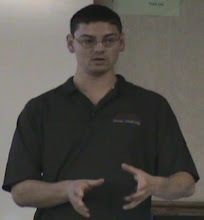One thing really stood out to me at first: most of the existing proposals for quantum computers were languages designed for quantum computing. However, I think there are very strong reasons for creating frameworks on top of existing classical languages instead of creating new languages:
- Over 8500 programming languages have been created [1], but in reality only a few see any sort of wide spread use. In my opinion, it is highly unlikely that we'll adopt new languages solely for the purpose of quantum computing.
- By creating a new language the designer(s) must tackle not only the quantum issues, which are hard enough, but all the classical ones as well. We've spent years on classical languages, the focus of quantum programming design efforts should be on quantum computation, not rehashing classical problems. Tackling the classical issues as well distracts from the goal at hand.
- Quantum computing is only typically utilized for part of the computation. Take Shor's algorithm for factoring [2] as an example: a quantum computer is utilized only for part of the algorithm, the rest is classical. Put that in the bigger picture of whatever software is doing the factoring and it becomes clear that quantum computing really does fit into Knill's QRAM model [3] where the quantum computer is a resource of the classical computer.
- Frameworks are meant to be extended, perhaps in ways the designer didn't envision. Frameworks are much easier to extend (through hot spots [4]) by their very nature than languages are. Extending the framework can lead to more elegant solutions and more readable code as opposed to trying the bend a language to accomplish something the designer didn't intend or want to allow.
(I've written about this previously in my dissertation on Cove to a certain degree, this just makes it more explicit in a more condensed blog format.)
References
[1] T. J. Bergin, "A History of the History of Programming Languages," Communications. ACM, vol. 50, p. 5, May 2007 2007.
[2] P. W. Shor, "Polynomial-Time Algorithms for Prime Factorization and Discrete Logarithms on a Quantum Computer," SIAM Journal on Computing, vol. 26, p. 25, October 1997 1997.
[3] E. Knill, "Conventions for Quantum Pseudocode," Los Alamos National Laboratory LAUR-96-2724, 1996.
[4] H. C. Cunningham, L. Yi, and T. Pallavi, "Framework design using function generalization: a binary tree traversal case study," in Proceedings of the 44th annual Southeast regional conference Melbourne, Florida: ACM, 2006.
[5] B. Omer, "A Procedural Formalism for Quantum Computing," in Theoretical Physics. vol. Masters Vienna: Technical University of Viena, 1998, p. 93.
[6] S. Bettelli, "Towards an architecture for quantum programming," in Mathematics. vol. Ph.D. Trento, Italy: University of Trento, 2002, p. 115.
[7] S. Bettelli, T. Calarco, and L. Serafini, "Toward an architecture for quantum programming," The European Physical Journal D - Atomic, Molecular, Optical and Plasma Physics, vol. 25, p. 19, August 2003 2003.

No comments:
Post a Comment